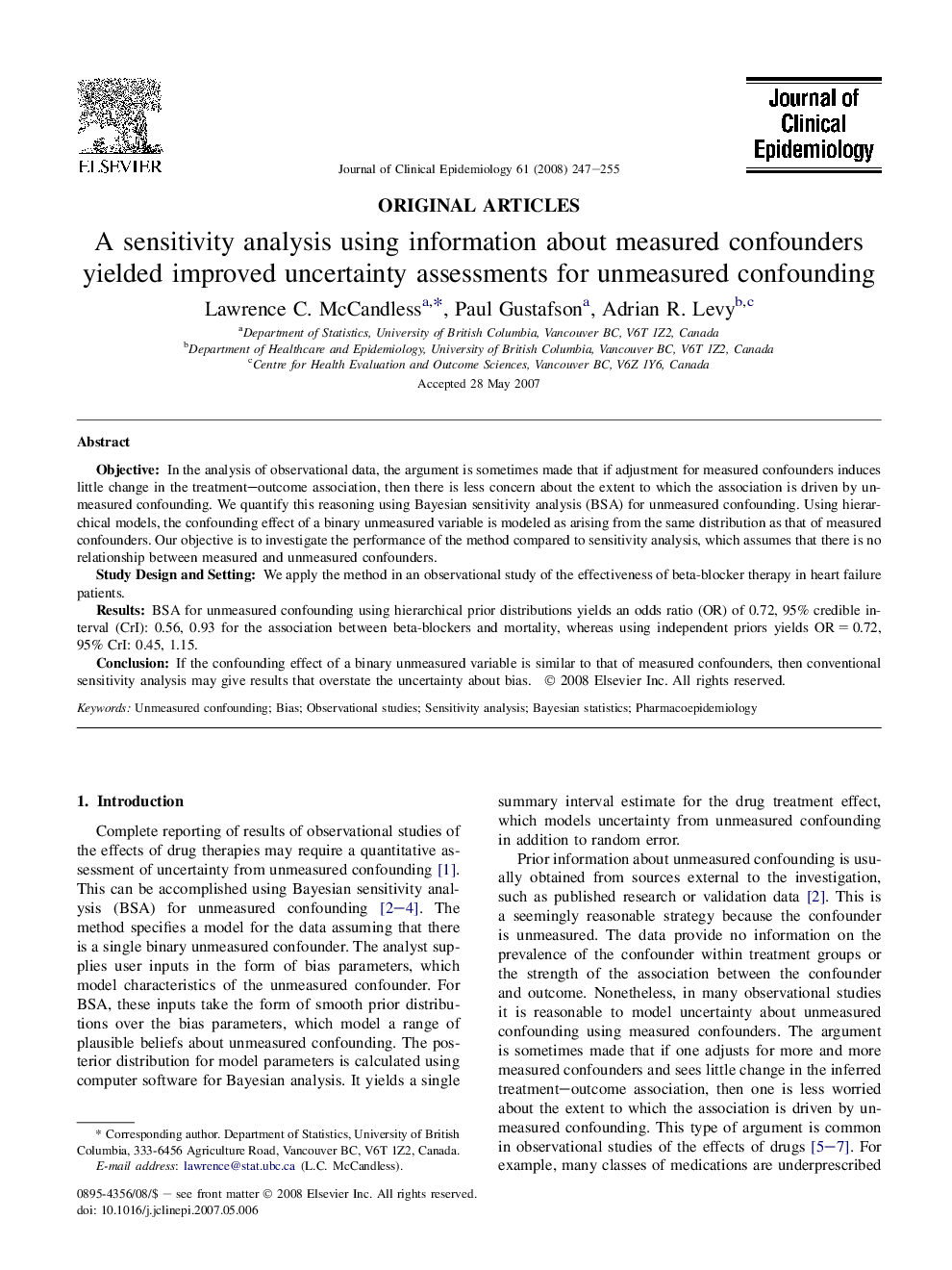| کد مقاله | کد نشریه | سال انتشار | مقاله انگلیسی | نسخه تمام متن |
|---|---|---|---|---|
| 1082894 | 950972 | 2008 | 9 صفحه PDF | دانلود رایگان |

ObjectiveIn the analysis of observational data, the argument is sometimes made that if adjustment for measured confounders induces little change in the treatment–outcome association, then there is less concern about the extent to which the association is driven by unmeasured confounding. We quantify this reasoning using Bayesian sensitivity analysis (BSA) for unmeasured confounding. Using hierarchical models, the confounding effect of a binary unmeasured variable is modeled as arising from the same distribution as that of measured confounders. Our objective is to investigate the performance of the method compared to sensitivity analysis, which assumes that there is no relationship between measured and unmeasured confounders.Study Design and SettingWe apply the method in an observational study of the effectiveness of beta-blocker therapy in heart failure patients.ResultsBSA for unmeasured confounding using hierarchical prior distributions yields an odds ratio (OR) of 0.72, 95% credible interval (CrI): 0.56, 0.93 for the association between beta-blockers and mortality, whereas using independent priors yields OR = 0.72, 95% CrI: 0.45, 1.15.ConclusionIf the confounding effect of a binary unmeasured variable is similar to that of measured confounders, then conventional sensitivity analysis may give results that overstate the uncertainty about bias.
Journal: Journal of Clinical Epidemiology - Volume 61, Issue 3, March 2008, Pages 247–255